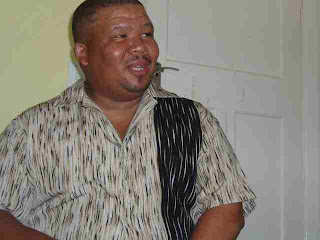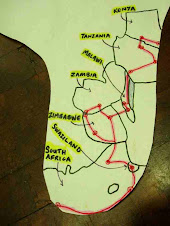STRATEGY HIGHLIGHT: Slum/Shack Dwellers International
 SDI is an international network of groups (like the Federation of the Urban Poor and the Alliance of Rural Communities) who work on social justice issues in informal settlements and poor communities. SDI is an NGO that provides professional support to grassroots groups, and works completely by requests for assistance from the communities themselves. The SDI staff serve as an interface with formal institutions, like governments and funders, and do things like documentation and technical support. They try not to intervene with communities’ governance issues, but just lend assistance when asked.
SDI is an international network of groups (like the Federation of the Urban Poor and the Alliance of Rural Communities) who work on social justice issues in informal settlements and poor communities. SDI is an NGO that provides professional support to grassroots groups, and works completely by requests for assistance from the communities themselves. The SDI staff serve as an interface with formal institutions, like governments and funders, and do things like documentation and technical support. They try not to intervene with communities’ governance issues, but just lend assistance when asked.
To be part of the SDI network, a community must agree to follow a few methodologies that SDI has formed over time. At first I thought, “ah, here’s the catch” but upon exploring these ‘rituals,’ as they call them, I realize they are pretty great. For example, a major focus of SDI groups is to start “saving schemes” whereby the women (and some men) of the community learn how to save a bit of the money, pool it and manage it together and offer microloans to their community, much like the Grameen Bank. There are no formal workshops or lectures on how to do this; training takes place in the doing. For many women, their savings book records are more important to them than their ID. They are proud and empowered. Like the saying goes: “If you teach a man, you teach an individual. If you teach a woman, you teach a family.”
One of my favorite aspects of SDI is that they create learning networks between communities! They arrange community exchanges to bring people from one community to another who may be further along so that they can learn directly from their peers. Sometimes the staff people serve as language interpreters, but other than that, they sit back and let the communities talk with each other.
One of their other ‘rituals’ is enumeration: to assist the communities in surveying their own settlements to get a profile of who is living there and under what conditions. This is especially important because funds are often given to groups most in need, and without accurate figures, poor settlements often get ignored. Again, SDI gives professional support but don’t actually do the survey work. They are, however, working on creating an online system, where communities can use a computer to make monthly updates.
 A key aspect of SDI is that they don’t work on the concept of entitlement, whereby a community takes a victim role and demands that they are entitled to help or resources. Instead they focus on activities like the saving schemes and surveys so that the community can build its own strong and united voice. With money in their pockets and information about their community, they have bargaining tools. Empowerment not entitlement.
A key aspect of SDI is that they don’t work on the concept of entitlement, whereby a community takes a victim role and demands that they are entitled to help or resources. Instead they focus on activities like the saving schemes and surveys so that the community can build its own strong and united voice. With money in their pockets and information about their community, they have bargaining tools. Empowerment not entitlement.
SDI seems to be a very cool concept in action. It seems to be a really great way to utilize the skills of professionals to serve and empower local communities. In my quest to find creative ways to affect change horizontally (among grassroots groups) and to build power vertically (to create international impact), SDI gets a big smile from me!


2 comments:
Thanks for posting a funny picture of mine on this page of your diary! Allow me to improve your quote: if I'm not mistaken, it was Malcolm X who said "if you teach a man, you teach an individual, if you teach a woman, YOU LIBERATE A NATION". Stefano
I think that you gave the idea of what SDI is accurately (and thanks for liking it), but please note just two small corrections. 1)though the most basic saving group gathers to empower the women through small loans, the big difference with the Grameen Bank model is that all the money lent is always contributed by group members, not externally (which strengthens dignity & independence). 2) we professionals try NOT to act as "interface" with Government or other big guns, but to document and empower the community leaders to go and speak for themselves.
enjoy the rest of the journey.
stefano
Post a Comment